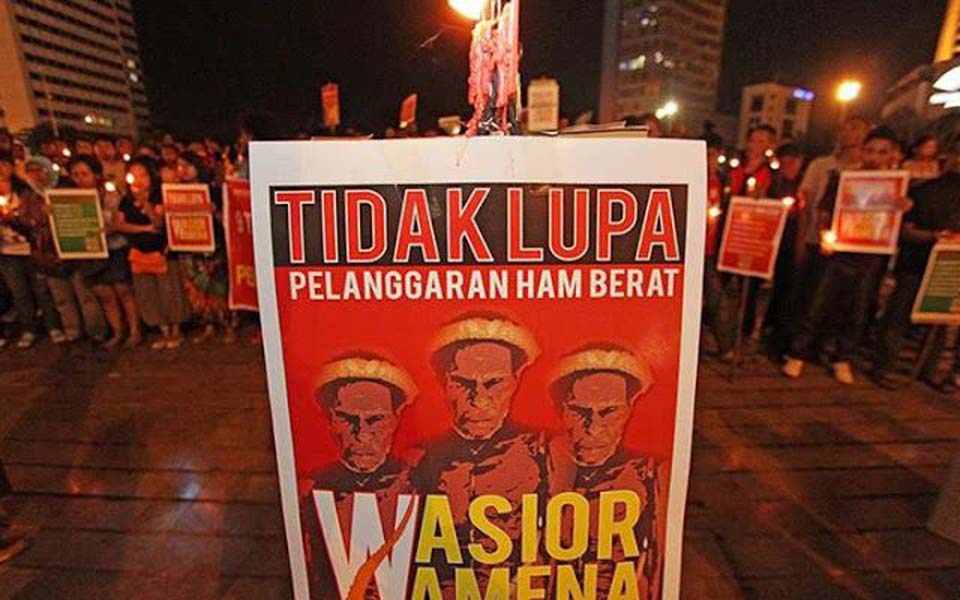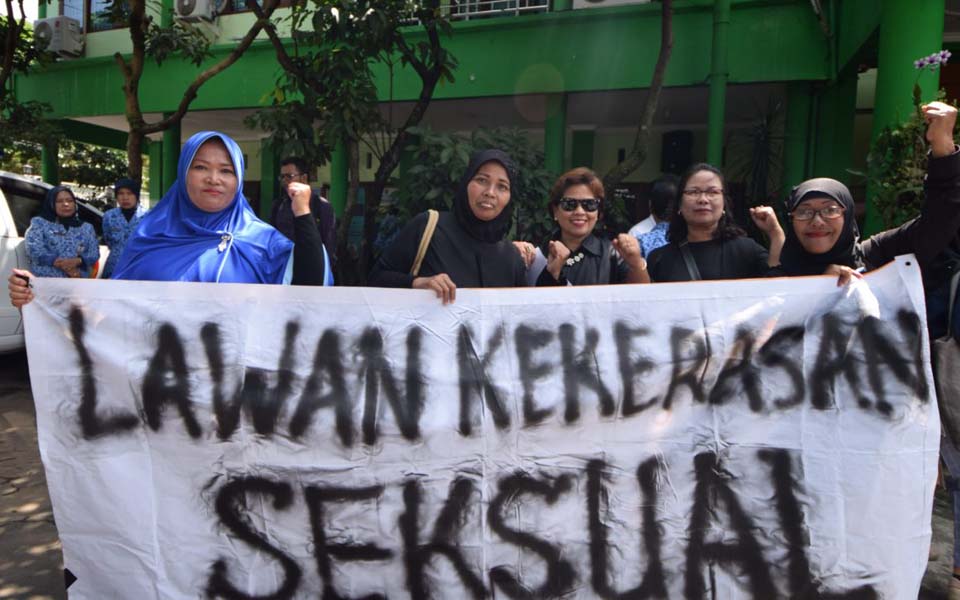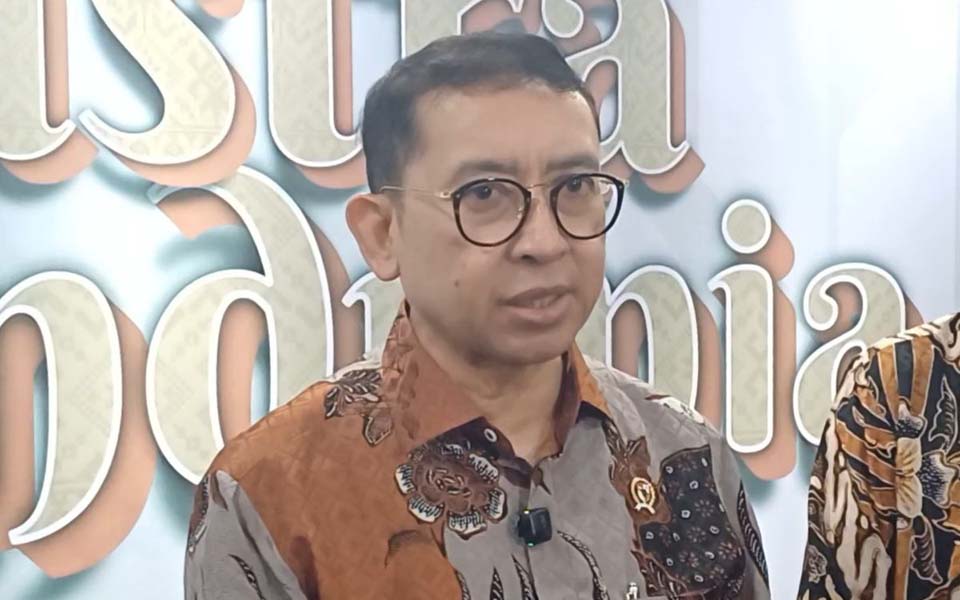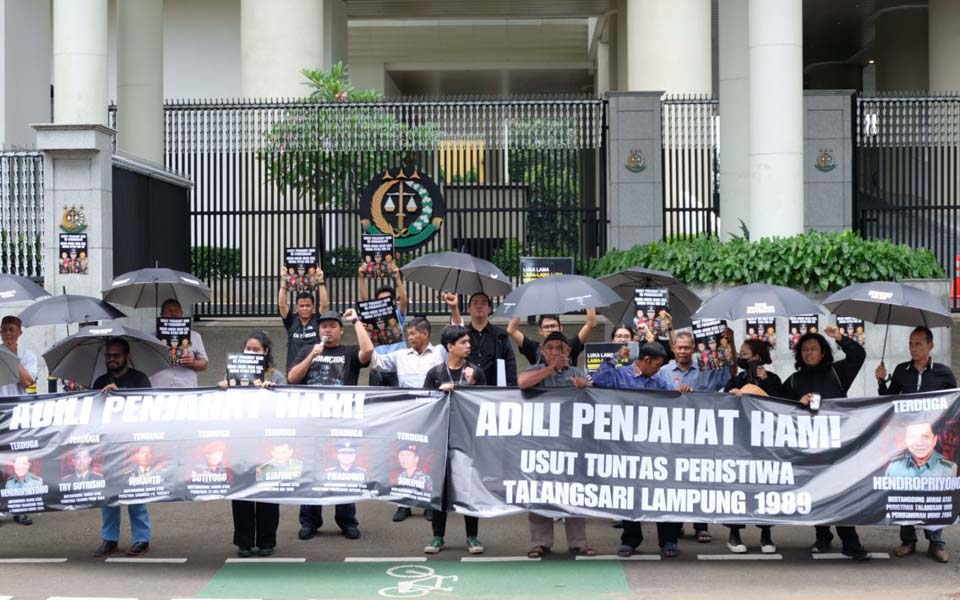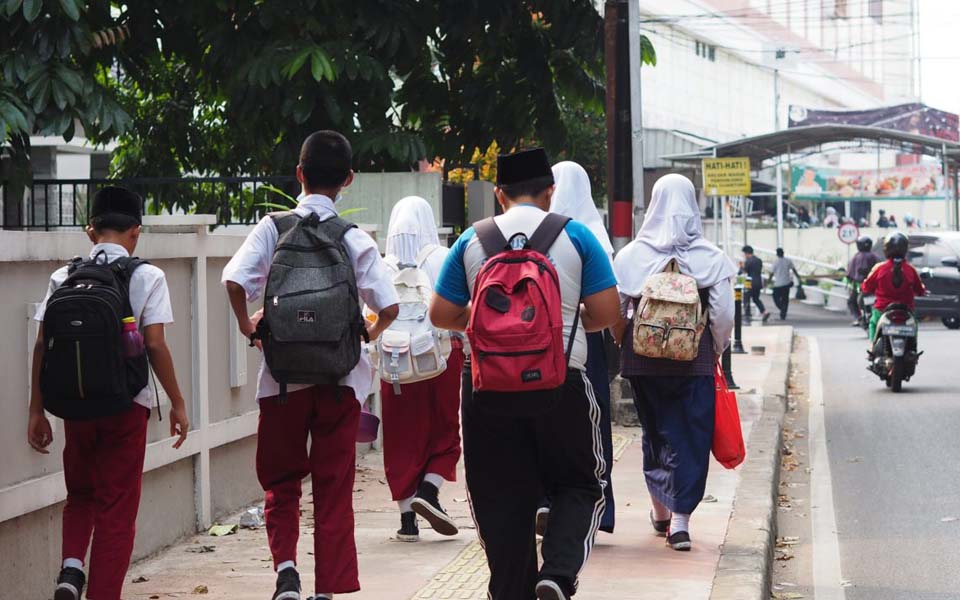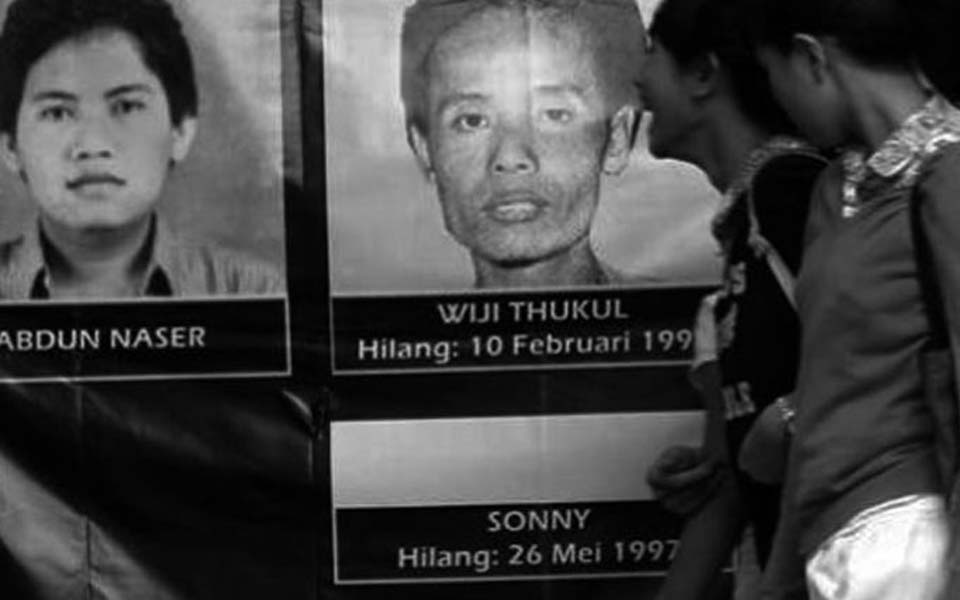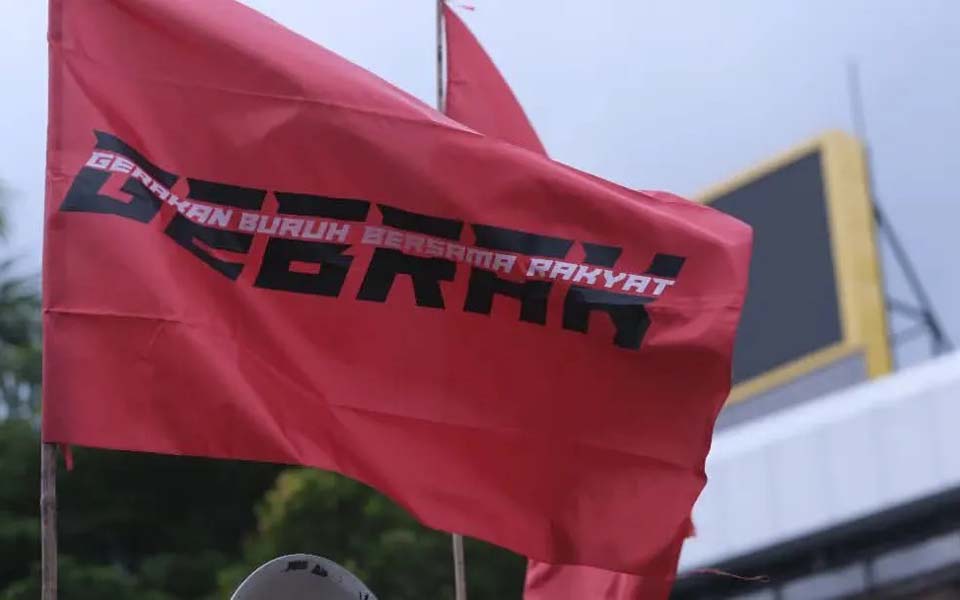Vitorio Mantalean, Jakarta – Resolving gross human rights violations through non-judicial channels or outside of the courts will perpetuate impunity and legal immunity for the perpetrators.
Sumarsih, the mother of Benardinus Realino Norma Irawan (Wawan), an Atma Jaya University student who was shot dead during the Semanggi I tragedy in November 1998, has explicitly rejected a proposal by Presidential Chief of Staff Moeldoko who said that ideally gross human rights violations which occurred in 1998 should be resolved through non-judicial mechanisms.
"Why do we reject this, because it will perpetuate impunity, because it is not through a court process", Sumarsih told Kompas.com on Thursday May 19. "Reconciliation is okay, but it must be through a court process", she continued.
Law Number 26/2000 on a Human Rights Court stipulates that there are two ways that gross human rights violations can be resolved depending upon whether they occurred before or after 2000.
Cases which occurred before 2000 can be resolved through an ad hoc human rights court as stipulated in Chapter VIII of the law.
An ad hoc human rights court is determined by the president on the recommendation of the House of Representatives (DPR). A recommendation from the DPR is based on a criminal investigation by the Attorney General's Office (AGO) as a follow up to the results of an investigation by the National Human Rights Commission (Komnas HAM) as the institution with the authority to determine whether or not a cases is considered to be a gross human rights violation or not.
Komnas HAM itself has already completed the investigation dossiers into gross human rights violations which occurred in 1998 and 1999, namely the Trisakti, Semanggi I and Semanggi II student shootings, but to this day they have never been followed up and investigated by the AGO.
Under the closing stipulations of the same law, it does indeed allow for the possibility of gross human rights violations before 2000 being resolved through non-judicial channels but through a Truth and Reconciliation Commission (KKR).
Sumarsih however says that a judicial channel is the most ideal option.
"And that is what we have been fighting for through various means, including by holding Kamisan [Thursday] actions. In almost every single Kamisan action letter which we have sent to the president, there is always a section asking the president to immediately urge the Attorney General to follow up on the [Komnas HAM] investigation dossiers on past gross human rights violations", explained Sumarsih.
Without going through a legal process and the trial of perpetrators of gross human rights violations, similar cases will occur again in the future.
The state cannot be allowed to run away from its responsibility just because it has given financial assistance to some of the families of victims of gross human rights violations, said Sumarsih, referring to the government’s recent gift of money and homes to families of victims of the Trisakti shootings.
According to Sumarsih, this is just another way of providing impunity to the perpetrators who are also part of elite circles of power.
"For me, when the law is weak, yes it's difficult for the ordinary people. Why, because state violence will continue to occur, there will be no efforts to break the cycle of violence, like the many cases now in Jakarta, Papua, and before that in Aceh", she said.
[Translated by James Balowski. The original title of the article was "Sumarsih: Penyelesaian Non-yudisial ala Moeldoko Langgengkan Impunitas Pelaku Pelanggaran HAM".]









